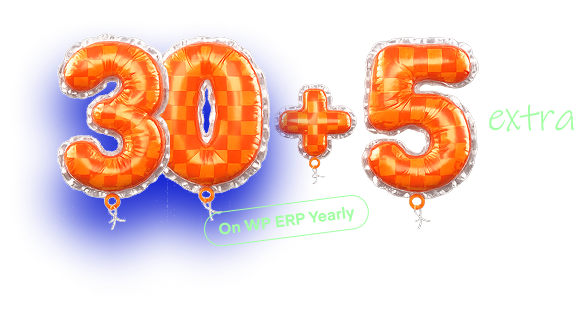The food and beverage industry is evolving at a rapid pace. Evolution in this sector is leading the way for new business challenges and increasing competition. So, people in the food industry are looking for new ways to excel. One of them is implementing ERP in the food industry.
ERP stands for Enterprise Resource Planning and refers to a software system for business management. An ERP system helps food companies to manage and optimize their business processes – from purchasing, accounting, finance, human relations, and production to logistics.
In short, ERP is what keeps your business up and running.
In today’s article, we will be discussing the role an ERP system plays in the food and beverage industry and how it impacts the operations of the manufacturing company.
Stick around till the end and we will also tell you about the solution that can help you maintain your food company easily.
Evolution of ERP Systems in the Business Industry

Enterprise resource planning (ERP) systems have been around for several decades, but their use in businesses has evolved significantly over time. In the past, ERP was just a tool for managing inventories, payrolls, and other business operations. However, over the last decade or so it has evolved to become a critical component in the business process.
Initially, ERP systems were used primarily by large organizations to manage their complex operations. However, ERP systems are now being used by businesses of all sizes. In a variety of industries, to streamline their operations and improve their bottom line. With the evolvement of ERP in the recent past, now it also enables organizations to use a system of integrated applications to manage the business and automate back-office functions.
Moreover, now with the evolution in technology, the software of ERP typically integrates all aspects of an organization, including finance, accounting, manufacturing, sales, and customer service. The first ERP systems were created in the 1960s, but the term “ERP” wasn’t coined until the 1990s.
Related: The Dynamic History And Evolution of ERP Systems
ERP in Food Industry: ERP System Features That Make Implementation Inevitable for Food Business

It is not like every ERP system is suitable for the food industry. It needs to have certain features in order to create a smooth manufacturing process. But, it’s no exaggeration to say that ERP for food and beverage businesses can improve nearly every facet of your business.
Firstly, let’s look at the features that make ERP system implementation inevitable for the food business and industry.
End to End Management
There are a lot of steps that go into manufacturing food and beverages. And managing the moving parts of a food and beverage company has never been easier thanks to ERP software.
Thanks to end-to-end management, owners can move data and workflow from multiple platforms into a single dashboard and access it from there. Moreover, that ensures superior data integrity, production management, quality control, forecasting, and more.
An ERP software helps users to see all the workflow and operations at a glance, makes it easy to pull reports, and identifies potential issues.
Reporting and Dashboard
As we discussed in our previous point, ERP software makes it easy to access data and create a detailed report.
In today’s modern manufacturing industry, it is very important to access data whenever necessary. As an owner, you need to be able to automatically run reports, keep your data updated, and access data anywhere, anytime.

Also, instead of relying on manual reports and data, an ERP system can keep manufacturing businesses’ institutional history and data organized. So, employees can access data even if they are working for a few months at the company.
Friendly User Interface
Implementing a new system can be a daunting task. Especially for people working in the food industry. They are more comfortable working with machines rather than inputting data into the software.
The right ERP system, however, should be easy to learn and intuitive to use for all employees, which will help reduce friction and minimize the learning curve.
If the user interface is easy to learn and use, the employees are most likely to follow the protocol instead of opting for shortcuts or falling back on outdated processes.
Streamlined Security Measures
It is very important to protect the data of your food business. That is why you need to opt for an ERP system that will offer straightforward authorizations and user permissions across the platform. This reduces the opportunity for a breach or any unauthorized access.
Robust Inventory Management System

In a food manufacturing business, it is very important to have a robust inventory management system. Otherwise, you will lose time and money. Because knowing what you have in hand is very important. So that you don’t run out of a key ingredient at a critical time.
The ERP solutions you will choose are built to track your material levels and update them in real-time, so you’ll always know exactly what’s left and can use those figures to inform smart purchasing decisions.
So, now you know the impact ERP in the food industry can bring. But you should also know,
The Perks of Investing in an ERP System for the Food and Beverage Industry
Business owners are always looking for a way to improve their conversion rate. However, choosing to implement an ERP system means growth in business performance, reinforcing company growth, and reducing working capital. More importantly, companies that are implementing ERP, are experiencing major success.
Let’s take a closer look at some of the significant benefits of integrating a food-specific ERP system.
Reduce Management Cost

Because of an ERP system, businesses are getting a holistic view of all the operations. So, they are able to quickly identify where they need to cut costs and where to increase them. This advantage can set food and beverage manufacturers apart from their competition.
The Aberdeen Group reports that small manufacturing plants are seeing a reduction in operating costs by 11% just by switching from a standalone solution to an ERP system.
So, we can safely say that food and beverages company can cut down their cost with ERP software.
Maximize Company Operations
Other than cutting down costs, food companies are able to find ways to increase the efficiency of their operations with ERP systems.
According to the TEC ERP Software Facts & Stats 2018 database, companies who implement an ERP reduce process times, increase collaboration, and have access to enterprise-wide, real-time data—all of which are imperative to optimization.
When companies grow, it becomes complicated to run operations smoothly. With an ERP system, companies make sure all the processes are running as they should be.
Increase Flexibility
95% of companies saw an improvement in their processes after adopting an ERP system according to the Aberdeen Group report.
ERP systems are versatile. That means food and beverages companies can use a specialized ERP that works best for their individual needs, products, and goals. As a business grows, using a system that can scale and evolve with a company is ideal.
Implementing an ERP system, whether for the first time or upgrading an existing one, may seem intimidating or daunting. However, you will find the benefits far outweigh any short-term concerns.
So, we talked about the advantages and perks of ERP for the food industry. You must be wondering what kind of solution will be perfect for you. We may have an idea.
WP ERP: Your One-Stop ERP Solution for Your Food Business

WP ERP is one of the most feature-enriched business management solutions, with three key yet separate business department modules ( HRM, CRM, Accounting).
This WordPress solution has a centralized dashboard from which you can manage Human Resources, Customer Relationships, and Accounting at the same time. This would give you complete transparency and you will have all the data in the palm of your hand.
It has modules that will help the food industry like,
- Human Resource Management (HRM)
- Customer Relationship Management (CRM)
- Accounting & Finance Management
- Inventory Management
- Marketing & Sales
- Supply Chain Management (SCM)
- Purchasing
- Production & Engineering
And in order to increase the efficiency of the food companies, there are features and modules like,
- Attendance Management
- Recruitment
- Reimbursement
- Payroll
- Asset
- Inventory
- Document Manager
- Deals
- Workflow and more
So, if you are looking to start implementing an ERP system, WP ERP is the right place to start.
FAQs on ERP and Its Role in Food Industry

Q1: Which software is used in the food industry?
Ans: Functionalities to look for include demand forecasting, compliance management, food traceability, ingredient inventory control, recipe management, and QC testing. Some ERP solutions are popular in the food and beverage industry.
Q2: How does ERP work in the industry?
Ans: Manufacturing ERP is a centralized method of managing every aspect of facility operations and processes, from production to payroll. ERP allows for unprecedented visibility, coordination, and management across the disparate processes that make up a business. Ultimately resulting in greater operational efficiency.
Q3: What are the 5 key components of ERP?
Ans: The five components of ERP are,
- Finance
- Human Resources (HR)
- Manufacturing and logistics
- Supply Chain Management (SCM)
- Customer Relationship Management (CRM).
Q4: Which industries are using ERP?
Ans: There are many industries that are using ERP systems,
- Manufacturing. ERP software is increasingly beneficial to the manufacturing sector
- Healthcare. A healthcare ERP software system can help you handle daily activities in the sector, including the procurement and sourcing of essential items
- Hospitality
- Waste Management
- Education
- Retail
- Construction.
Implement The Right ERP System to Manage Your Food Business Better!
It’s no secret that ERP software is a vital part of manufacturing operations. And according to research, nearly 50% of manufacturers are planning on or have already begun upgrading their ERP systems.
Food and beverage companies need to consider using an ERP system. Because it relates to the company’s specific needs.
The right food-specific system will provide transparency and accuracy through real-time data, an encompassing view of company operations. It also automates core company functions.
We have gone over the necessity of ERP systems for the food industry and also we have shown you the features of WP ERP.
If you have any questions regarding the post or ERP, do let us know in the comment section below.












